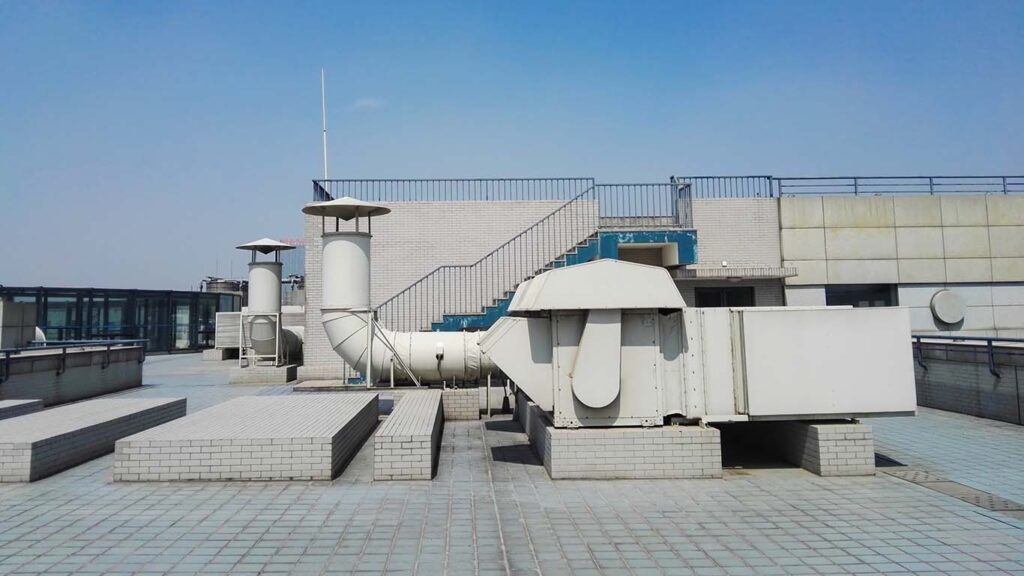With these individuals enjoying the benefits of air conditioning, people in the manufacturing and production industries can not only benefit from air conditioning, but also must use Industrial cooling systems.
Many industries rely on machines that produce high temperatures. Without adequate cooling, equipment can fail, energy costs can rise, and worker safety can be compromised.
With the most recent advancements in industrial water cooling systems, operations are more efficient, requiring less energy use, saving on costs, and a greater longevity of the equipment.
Enhanced Equipment Performance And Longevity
Devices strive for a regulated temperature. Too much heat can damage internal components and make things less efficient. Overheated machines consume more energy, leading to higher operational costs.
With such advanced cooling systems, industries must keep their machines operating at the highest possible performance. This also avoids surprises and failures, which reduces downtime and maintenance costs.
Cooling systems also prolong the life of costly equipment. With inadequate cooling, metal components stretch and shrink, creating wear and tear. And over time, this leads to cracking and system failure.
Overheating also reduces the accuracy of industrial equipment. Because materials expand when the temperature increases, this can lead to a lack of accuracy in production.
Reduced Energy Spending And Usage
Industries are particularly burdened with high energy costs. Cooling mechanisms also reduce the power required to operate machines efficiently. Conventional cooling systems are inefficient.
Modern systems now employ smart technology to alter cooling levels depending on demand. This saves on electricity consumption, which reduces utility bills. Other cooling systems employ advanced heat recovery methods.
These systems recover and reuse waste heat, converting it into usable energy. This reduces total power usage, assisting industries in achieving energy efficiency targets. And it decreases reliance on fossil fuels, which lowers carbon emissions.
Advanced cooling systems layout offers protection from overcooling as well. Many older systems run at near capacity even when cooling is not needed. Smart cooling technology sets temperature based on data from the moment.
Improved Employee Safety And Comfort
Heat can be dangerous for workers in industrial settings. Heat exposure and dehydration impact both performance and health. In severe cases, workers risk heat exhaustion or heatstroke.
Advanced cooling systems maintain safe temperatures for employees, minimizing the risk of workplace accidents. Some industries expose workers to extreme heat, such as metal processing and chemical manufacture.
Cooling systems bring down temperatures and create a safer environment. This enhances employee satisfaction and cuts absenteeism. A well temperature-controlled office can help the whole staff focus at their work better.
In some industries, including food processing or pharmaceuticals, cooling systems help improve hygiene and safety when air quality is essential. Investing in advanced cooling solutions is not only creating a healthier workplace but also a more productive workforce.
Adherence To Environmental Policies
Companies have to deal with very rigid environmental regulations. These limits are set by the government on emissions and energy. These regulations are addressed through advanced cooling systems.
They’re also made with ozone-friendly, eco-refrigerants. Many such systems also save on water, reducing industrial waste. Older HVAC systems use greenhouse gases and harmful chemicals.
Modern industrial water cooling reduces carbon footprints These aids industries in reaching sustainability goals and preventing significant penalties. It also enhances a company’s image as an environmentally responsible enterprise.
Industrial sectors also become eligible for government incentives with energy-efficient cooling systems. Many areas offer business tax incentives or rebates on investments in technologies that are sustainable.
Technology Places Empowerment At The Core Of Productivity
Heat influences manufacturing accuracy Materials expand at high temperatures, causing defects. This leads to rejected products, waste and cost. Sophisticated cooling systems keep temperature stable, allowing for exact formatting.
As a result, there are fewer errors and better-quality products. In industries such as food processing, pharmaceuticals, and electronics, managing temperature is vital. High heat speeds the spoiling of perishable goods.
Drugs that are stored incorrectly become less effective. Without proper cooling, electronics overheat, and this causes performance degradation. Proper cooling avoids these problems and prevents product safety issues.
A better cooling system comes with better operations in industries that are being invested in. Machines do not get tired, employees are more efficient, and production lines function normally.
Conclusion
Such installations help industries reap the long-term benefits of advanced cooling systems. Effective cooling minimizes equipment wear, reduces energy costs, and increases safety in the workplace.
This also helps businesses comply with environmental regulations and manufacture quality products. Inefficient cooling leads to additional costs, downtime, and threats in industries.
Unlike traditional systems, modern cooling solutions offer improved control, greater efficiency, and consistent operation. If businesses invest in upgraded systems they secure their investment, improve productivity, and keep up with their competition.


